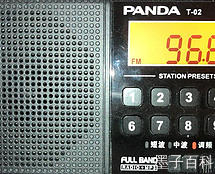
-
Media refers to various means of communication and dissemination of information, including print, broadcast, and digital platforms. It plays a crucial role in shaping public opinion, sharing news and stories, and promoting entertainment and advertising.
-
Traditional media, such as newspapers, magazines, radio, and television, have long been instrumental in delivering news content and entertainment to the masses. They have a wide reach and influence, although their dominance has been challenged by the internet and digital media.
-
Digital media encompasses online platforms like websites, social media, blogs, podcasts, and streaming services. It offers immediacy, interactivity, and personalized content that traditional media often struggles to match. Digital media also allows for user-generated content and easier sharing of information.
-
The power of media lies in its ability to shape public opinion and influence behavior. From news reporting to advertising, media can sway attitudes, beliefs, and purchasing decisions. It plays a crucial role in democracy by providing information, creating awareness, and holding those in power accountable.
-
Media literacy is essential in today’s society. Consumers must critically evaluate media messages, discern credible sources, and understand media biases. Media literacy enables individuals to be informed, active participants in the media landscape and make well-informed decisions based on diverse perspectives.













